When it comes to sustainable travel the first thing that comes to our mind is probably, that not to travel at all is the most sustainable way.
But are you aware of the fact, that many of the countries we travel to rely on tourism for their survival? We would like to show you with this article how we can keep up the tourism but make traveling more sustainable at the same time.
DEFINITION – WHAT IS SUSTAINABLE TRAVEL?
The interpretation of sustainable travel is diverse, which makes it even harder to find an exact definition.
Sustainability itself means to not consume more than we can produce or more exact it is “the ability to sustain”. The term can be understood in three different ways.
- The ecological sustainability refers to nature and literally means to not consume more than we can regrow or rebuild. Therefore, you should choose your destination with the aspect of nature conservancy.
- The economical sustainability attends to the financial aspect and demands to live in balanced relations. Support local providers at your destination instead of buying from international companies.
- The social sustainability stands for the peaceful association with each other and the promotion of different cultures at your destination.
This means we not only have to think about our transportation to and from our destination, but also to treat culture, people and nature with respect. We also must choose our accommodations and activities wisely. Did you know that sustainable travel already starts at packing?

WHY SHOULD I TRAVEL SUSTAINABLY?
Sustainability became a beautiful trend and for many it developed into a new lifestyle. Nevertheless, we often act unaware and do not think about how much negative impacts we can have during our stay in a foreign country. Only because we live sustainable at home it does not necessarily mean we would do it similarly abroad.
During our stay we represent not only our own country, but our culture and our beliefs. We can act as role models in less developed countries and educate the people there.
Beaches, that 10 years ago were endless and beautiful are now hardly recognized under piles of plastic. Trash is thrown on streets instead of correctly disposed. Nature reserves are cut down to build new hotels and every single day millions of tons of CO2 are blown into our atmosphere because of our aware and unaware behaviour.
Sustainable travel also means to have in mind, that our kids and grandkids can see the most beautiful places of our planet and that they do not have to deal with the sorrow we left for them. Nobody is perfect and we all can have our impact to a more sustainable travel.
In the following we collected the most important tips to make your travel more sustainable in the future.
HOW CAN I TRAVEL SUSTAINABLY? 12 TIPS
- Your destination: It does not always have to be a holiday abroad. There are for sure stunning places in your country you will absolutely love! You could also enjoy some time with your family or friends. If you still got the travel bug, you might as well take a train or a remote bus to get to a destination in a neighbouring country.
- Try to fly less: Many destinations can only be reached by plane. Try to at least stay at your destination according to your flight time. To fly from Germany to the Caribbean for 7 days is definitely not necessary. Instead, try to spend at least 2-3 weeks or even your whole yearly holiday in a faraway destination.
- Less is more: That is also true when it comes to packing. The more clothes you put in your luggage, the more weight you will bring on the plane, which means more emission of CO2. In addition, you will hate yourself for bringing so much stuff and being very inflexible at your destination.
- Choose your destination wisely: Before booking a hotel or a flat you should inform yourself on their website on how sustainable they are. Are they sustainable with recycling, food and other resources? Big hotel chains are usually built from foreign investors and therefore nobody cares what is happening around the hotel.
The number of so-called Bio-Hotels is growing. Here you can be sure that less plastic waste is produced, and it is sustainable economized. Good alternatives to hotels are also homestays or couch surfing. The flats you would live in are already there without your desire to travel and who knows, you might get to know some really nice locals?
- Buy local products: Instead of supporting big companies, which are shrinking the living space of animals and human, you would help a lot by buying from local people. Stay away from fast-food chains and try new, healthy dishes. Same for small souvenirs or post cards – buy them in a small shop instead of a mall.
- Avoid waste: It should not have to be said, that when you produce trash you take it and discard it properly. Regardless from this beaches, forests and cities drown in trash because people are leaving their stuff behind.
Apart from that you should always bring a metal drinking bottle from home to avoid buying a pile of plastic bottles during your stay. If the water is not drinkable you can ask your accommodation for a fill-up or buy bigger water canisters.
- Inform yourself online: Travel planer and city maps usually go to waste or become dust catchers after a trip. With the help of online maps from Google-Maps or maps.me you can easily download maps right onto your phone and have it always in your pocket. Inform yourself online about your destination and its sights before and during your journey. Travel planer are nowadays not necessary anymore.
- Ecological transportation: When you get to your destination the best way of getting around is by walking, taking the bike or using public transportation. This is much more environmentally friendly than renting your own car. Additionally, you get to be in the middle of everything and get to experience countries in the most authentic way.
- Be a role-model: In developing countries the residents often look up to western people because they believe that our behaviour is desirable. This means when we are there, we must be more aware of a polite contact, but should also share and explain our positive lifestyle (e.g. stainable, plastic-free, vegan). Through this we can have a positive impact on the country and other people.
- Refuse unethical activities: There is the saying “When in Rome do as the Romans do” and do not get me wrong – we all should do our best to fit into a foreign culture. But you should be aware of the fact, that many of the specialities of a country or city are only made for tourists. This often means that human or animals are tortured to do something they should not be doing. Avoid activities like “Ping-Pong Shows” in Bangkok, elephant riding by the beach (or of any other form), playing with toothless snakes at the markets of Marrakech or petting zoos with wild animals. Every kind of captured animals should be fully refused. Inform yourself whether the activity you are planning on doing is morally maintainable and you do not do any harm through your participation.
- Save power and water: Especially during holidays we love to take long, hot showers and leave the light on, because we do not have to pay the bills afterwards. It is true though, that a constantly running AC or a dripping tap does bigger damage at your destination than at home. If you want to travel sustainable, you need to reduce your electric power and water consumption to a minimum. Many countries suffer from a lack of clean water and every litre of water might count for the survival of the people.
- Tip!: Keep in mind, that people from other countries rely on your tip because their loan is usually not enough for a proper living. Inform yourself before a trip how much you should tip at your destination and reward the people that are serving you. Also ask yourself, whether you really need the change when you buy something or if it could help your counterpart a lot more.
ORGANIZATIONS FOR SUSTAINABLE TRAVEL
- CO2 Compensation: myClimate and atmosfair are two popular companies when it comes to compensating your CO2 emission after your journey. They calculate your emission regarding to your flight (also for other transportation) and you can donate the money for some of their climate protection projects, respectively.
- Sustainable Travel Companies and websites: For every kind of journey you can find companies that are committed to make travel more sustainable. Often you can also find websites where you can book the whole journey as you please. You will find sustainable hotels, more tips on how to travel sustainable and they also donate money to charity and help projects worldwide. Important representatives are e.g. Sustainable Travel International, FlyGreen, Responsible Travel or kynder.
We hope that we were able to give you some useful tips for your next journey and that you know now how to make your next trip more sustainable without having bad conscience about traveling.
If you like this article we would love to hear your feedback in the comments or on social media. Tell us, how you make your traveling more sustainable.


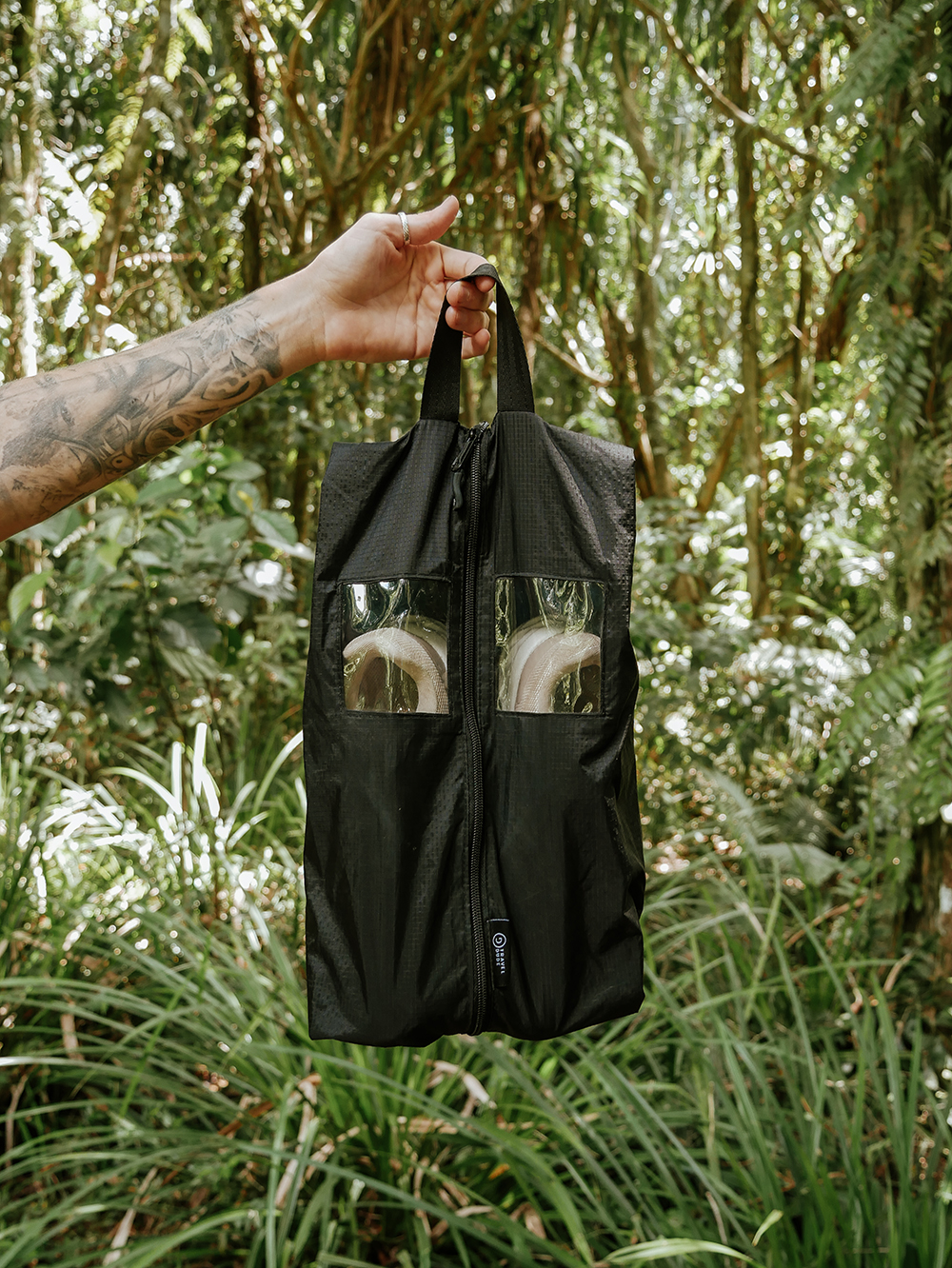
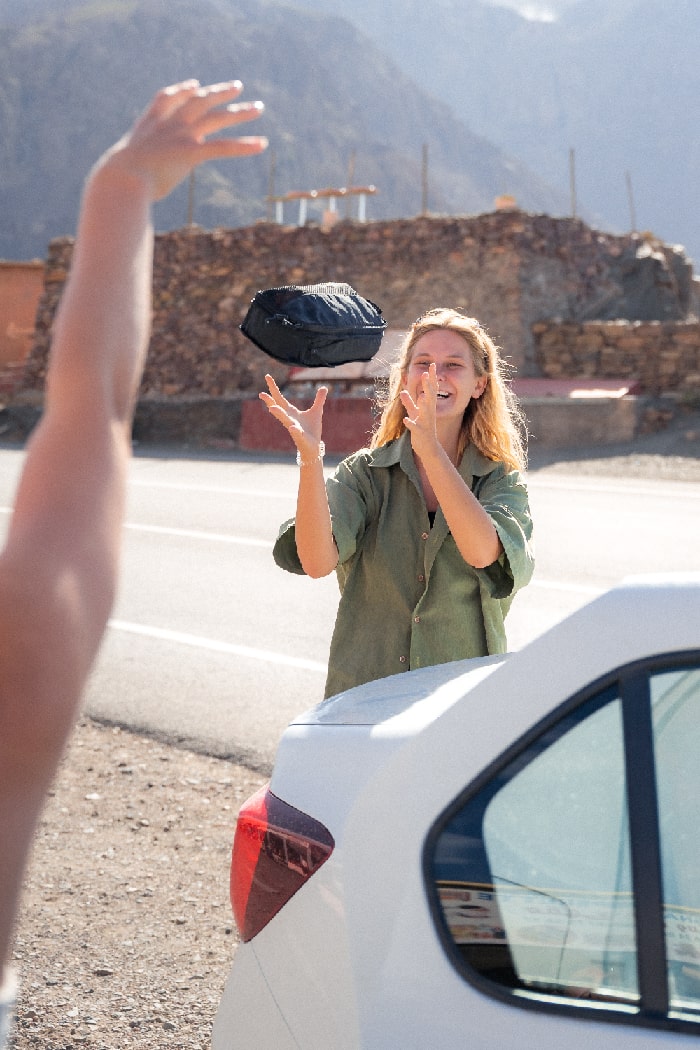
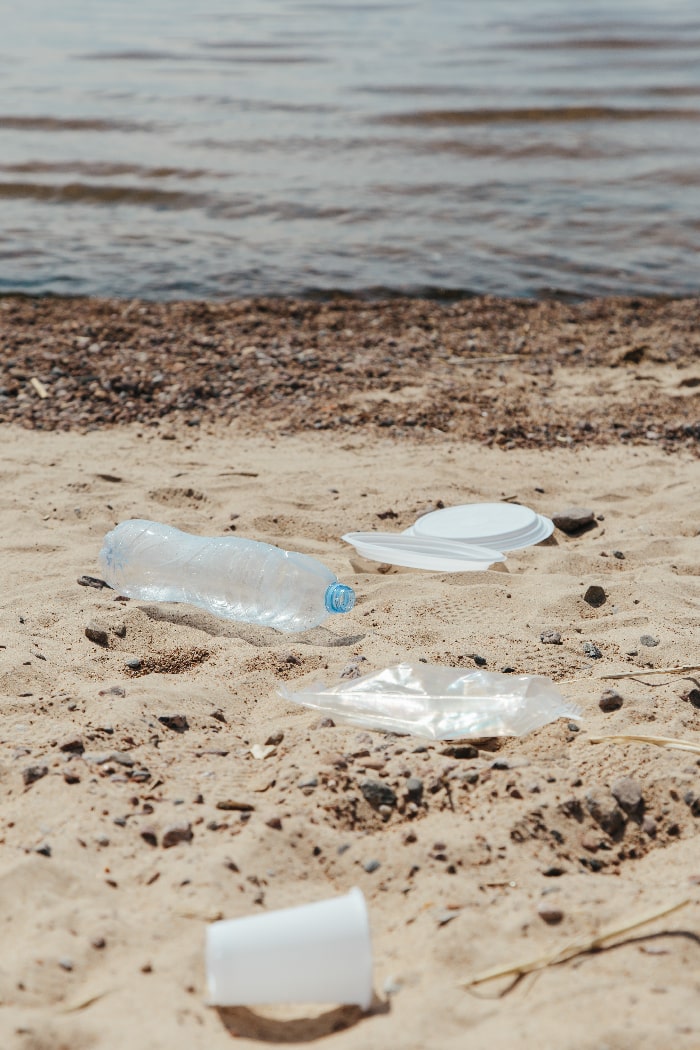
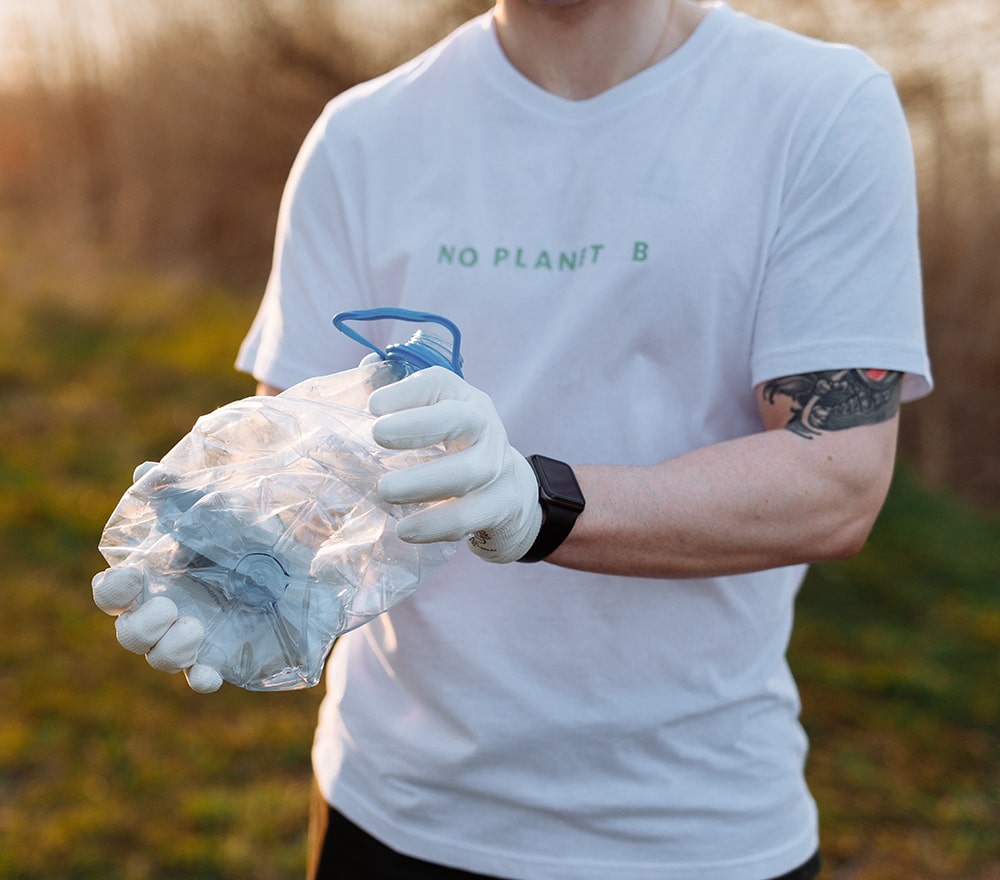
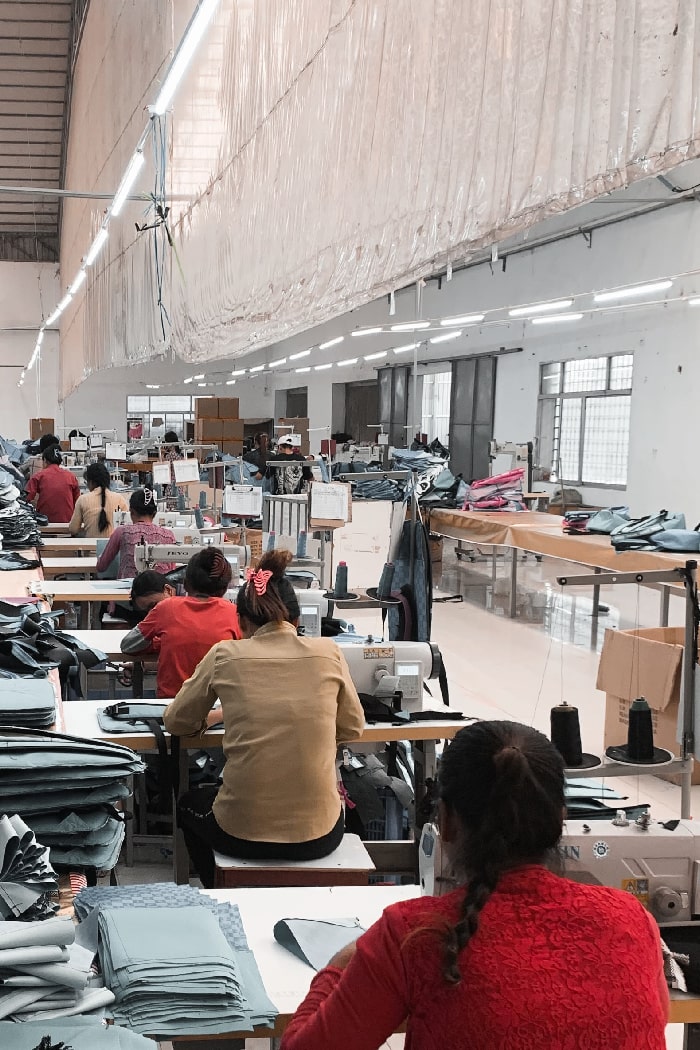




Let us help you travel even better
Download our
Ultimate Travel Packing List
Thank you!
Your packing list is on the way to your inbox.
By signing up, you‘re subscribing to our newsletter.